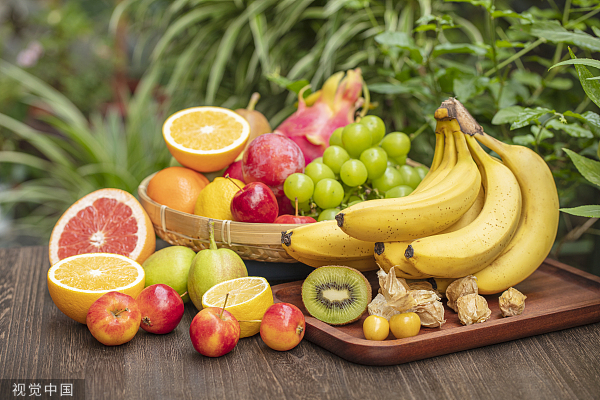How to eat warm and healthy fruits in this cold winter?
The temperature is low in winter
Dare not eat cold fruit.
Worried about upset stomach.
Cook the fruit and eat it
Is it delicious and warm?
The nutrition of heated fruit is "discounted"
Are these statements true?
How to eat warm and healthy fruit in cold winter
Today, Xiaobian will answer you!

01
It’s good to eat fruit heated!
After heat treatment, the fruit hardness is reduced and the texture becomes soft.Easier to chew. When fruits are heated, they can also soften fibers, inactivate enzymes and kill pathogenic bacteria.Suitable for people with weak digestive function..
Soluble sugar is an important factor to measure the quality of fruit. The high content of soluble sugar in fruit makes the fruit sweet and delicious. The content of soluble sugar in fruit can be greatly increased by heating, so the fruit tastes sweeter when cooked.
02
But not all fruits are suitable for heating.
Heating will lead to the oxidation of vitamin C in fruits. The higher the heating temperature, the faster the oxidation rate.
Fruits with low vitamin c contentSuch as apples, peaches, pears, bananas, etc., can be eaten by heating. Although heating will cause the loss of vitamin C in these fruits, the loss of minerals, dietary fiber and antioxidants contained in them is not great.
Fruits rich in vitamin c, such as winter jujube kiwi fruit, it is best not to heat it.
03
How to heat the fruit better?
Heating fruit can be usedSteaming, boiling, baking or microwave heatingThe way
You can control the heating time according to your own preferences. Generally, it can be boiled for about 2 minutes after the water is boiled. At this time, the surface of the fruit is warm and suitable, the fruit is warm and delicious, and the soup is sufficient.
04
How much fruit is appropriate to eat every day?
The Dietary Guidelines for China Residents (2022) points out that healthy adults consume it every day.200 ~ 350gFruit is more suitable.
A medium-sized apple is about 200g, a kiwi fruit is about 100g, and a banana is about 120g after peeling. It is suggested that two or three varieties should be selected and matched reasonably every day to make the nutrition complementary.
05Fruit does not replace vegetables!
Vegetables and fruits differ in the types and contents of nutrients. The carbohydrates contained in fruits are mainly sucrose, glucose and fructose, and the content is high, accounting for 5%~20%, which can be absorbed by small intestine after a little digestion. If you eat too much, it will cause the accumulation of sugar, which will quickly turn into fat and cause obesity. The carbohydrates contained in vegetables are mainly polysaccharides and dietary fiber, and most of them are low in content, which is not easy to cause obesity. The contents of vitamins and minerals in vegetables are generally higher than those in fruits.